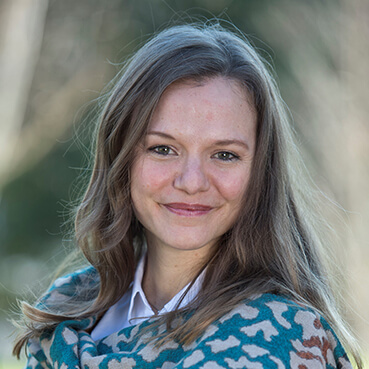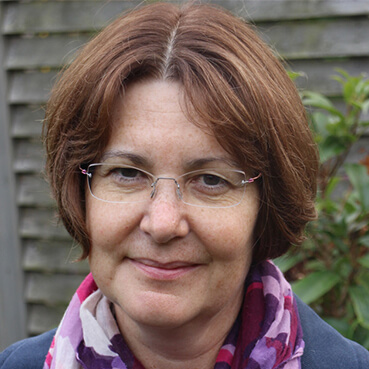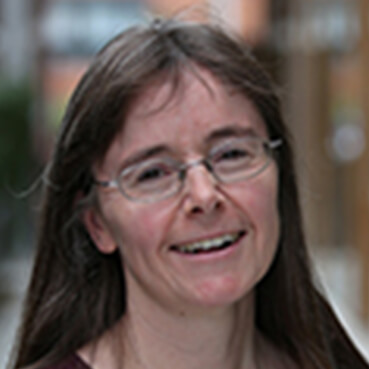9 May 2022
Designing programmes for learning: Foundations and aspirations

Author
Carmen Tomas
Associate Director of Education, University of Nottingham
Katharine Reid
Faculty of Science Associate Pro-Vice Chancellor for Education and Student Experience/University Lead Curriculum Transformation Project, University of Nottingham
Sarah Speight
Pro-Vice-Chancellor for Education and Student Experience, University of Nottingham
Carmen Tomas, Associate Director of Education, University of Nottingham.
Katharine Reid, Faculty of Science Associate Pro-Vice Chancellor for Education and Student Experience/University Lead Curriculum Transformation Project, University of Nottingham.
Sarah Speight, Pro-Vice-Chancellor for Education and Student Experience, University of Nottingham.
The design of programmes of study directly impacts on student learning and their experience. Over the past 15 years, there has been increasing interest in the design of curriculum and assessment at programme-level, resulting in several initiatives across the sector. The University of Nottingham has worked, for the past eight years, to improve assessment practices. As part of our institutional trajectory, we collaborated across the sector to investigate the student assessment load. Emanating from this, we have developed an institutional framework for programme design involving staff and students. Subsequently, we ran pilots with most disciplines in order to refine the framework. The University of Nottingham led and collaborated on a sector-wide Jisc-funded project looking at learning analytics for programme design.
Building on our institutional experience, this year the University of Nottingham is upscaling the implementation of the piloted design processes and framework working across all schools in our institution. As part of our institutional launch, we felt it was timely and beneficial to hold an online event. Our aim was to share our progress, position our work in the context of the sector and bring lessons from other institutions. We wanted to reignite interest and impetus for this strategic area of work across the sector by looking at work over the past decade, learn key lessons and also look forward at new challenges.
In January 2022, the University of Nottingham hosted a two-day online conference to review progress across the sector and to consider how to affect institution-wide transformation. 44 speakers and more than 500 delegates, from both national and international destinations, took part in the event.
The conference covered both foundations and aspirations for programme design. Day one focused upon foundations and included:
- A keynote by Cees Van der Vleuten (Maastricht University) in which he discussed programme level design for validity, design and student learning, and insights into practical implementation.
- A review of progress across the sector, revisiting the evolution of two key frameworks for programme level design of assessment (PASS and TESTA) established over a decade ago.
- Case studies of programme level design, both at the University of Nottingham and at other institutions, were presented to inspire practitioners. The broad range of cases across subject disciplines demonstrated that the principles provide a robust foundation for all programmes.
- Examples of the powerful impact that students at the University of Nottingham have as partners and co-designers of programmes of study. Students described their work and discussed its impact upon curriculum design and upon their own professional development.
Day two of the conference focused upon the sector’s aspirations for programme design, exploring existing and new challenges. Sessions covered:
- Institutional transformation. A roundtable session focused on exploring eight institutional journeys to adopt the principles discussed. Progress, impact and lessons learnt were discussed. Despite the diverse range of institutional approaches, a sense of shared understanding and common goals emerged in the discussion. Whilst no quick fix emerged, the commitment to providing institutional support and guidance over many years was deemed to be both essential and impactful. Offering flexibility, working in a collaborative manner, communicating effectively and developing the ability to work in teams were common themes across institutions - as was the need to change regulations.
- Values in programme design. A keynote by Jan McArthur reminded us of the need to incorporate values in the design of programmes by rethinking some key notions in practice. Also on this topic, we had a joint session with colleagues from the University of Nottingham and QAA addressing practical approaches to incorporating values in the curriculum.
- Analytics for programme design. A discussion of analytics for programme design and student engagement considered both proposals and actual institutional developments. Carmen Tomas shared insights on proposals for the development of analytics based on outputs of a Jisc-funded project. Karen Barton, from the University of Hertfordshire, presented newly developed dashboards on programme-level views of assessment to students and staff.
Over two days, the conference provided an important and collaborative review of progress across the sector. It provided a mechanism for sharing best practice, and for discussing barriers and opportunities. Together, participants reaffirmed that the move to adopt better mechanisms for the design of programmes is here to stay, with momentum growing.
Our conference materials provide a rich resource for institutions engaged in this important work. The breadth of topics covered provide an excellent overview of all the developments, past and present, about programme level design of assessment. Recordings of all sessions and key resources are now available and shareable on the University of Nottingham conference website.


